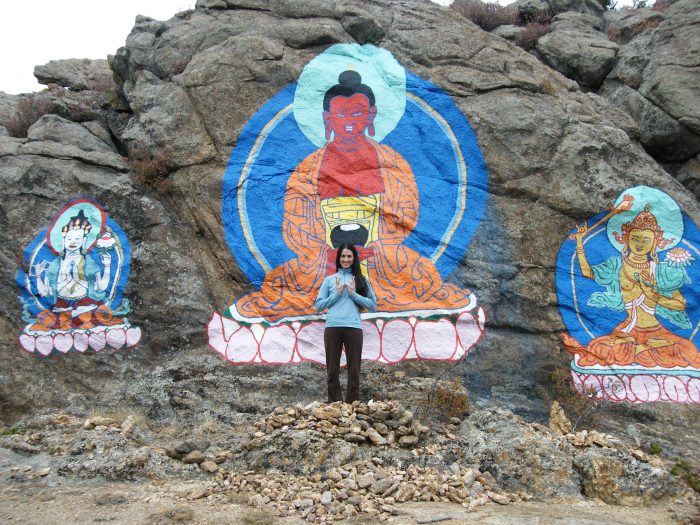It’s a yogic paradox. At the dawn of the New Year, many of us have chosen a path to better ourselves. Using our highest intentions, we choose what aspects of ourselves are ripe for change and walk courageously in that direction. We embark towards a better version of ourselves by deciding what habit is going to add to our growth and what is taking us away from it. At first glance, it appears we are aligned with the best re-mastered song for our dance. And, we are often humble as beginners — afraid to walk into the new arena. Our inner perfectionist hates first-times, audiences, and mirrors. And then, we actually see our improvement. And, improvement looks good, like dayuum good.
If we’re committed to self-awareness, we can enjoy the sizzle of our index as it lands for a moment, but then, hopefully, we laugh. If all those coconut water electrolytes get to our head too fast, we might catch ourselves bragging on Day 30 about our winning streak, but then, hopefully, we clap for our companions too. But, there’s an elephant in the room that nobody’s mentioning– a trap-door in the middle of all this self-love business. Right on cue, just as we reach the other side of the middle path, a heaping dose of : Ego.
Dang it.
All that outerwork inevitably, leads us back to innerwork. Because mind and body are inseparable, right? So, we breathe. Old patterns are being interrupted and new synapses are being formed. Retraining the brain takes time. Keep an honest inner-dialogue with ourselves about the paradox of self-improvement–being at the risk of ego-centrism–and keep going…mindfully. Stay humble. Uplift the resolution in the name of something greater and thus, acknowledge that, “the devil is in the details.”
Ironically, the ego loves self-improvement. That’s part of the reason we are so attracted to New Year’s resolutions. And, for those on the path to union (yoga), encouraging the ego to become even bigger , could easily sour our recipe for improvement. So, the question is this, could you be just as happy that your best friend lost 10 pounds or quit smoking before you did? Could you lay down your efforts at the feet of your children, your community or the Divine without adding the jewels to your own crown? Can you run that marathon solely to fundraise for those who can’t run? That kind of inner resolve would really be worth celebrating. All it takes, is a moment of silence to ask ourselves, “What is our ‘Why?” And then, like a mantra, hold it close to our heart every day we work at our resolutions.
Whether we fail or succeed, being mindful as we approach these new intersections of choice becomes the real challenge. Dealing consciously with the inflation brought by our success, or the deflation caused by our failures, should be more than a footnote on the page of our intention. It’s important that one’s success does not enable their judgement of others, and that one’s failure does not land them in a puddle of self-loathing. Instead, we can choose compassion for all. The journey is the destination.
In Sanskrit, the word for ego is ahamkara, literally, the “I maker.” Resolutions help us to see ourselves, as the Jane or John Doe we have created, and choose to change it. This changeable ego could be redesigned absolutely beautifully, but we should anticipate also for it to come with a stronger sense of ‘I’. An ‘I’ we are extrememly proud of being. And, there lies the dilemma. ‘I’ stands by itself, ‘I’ stands for ‘individual’, ‘in divide’ or ‘in duality’. That’s the paradox.
Can we improve upon ourselves, not to create separateness but to instill union? Buddhist teachers attest that the ego is like an apparent puddle in the middle of a desert-dry highway. It’s an illusion. Swami Muktananda said that our real ego problem is that our egos aren’t big enough. What he meant was that we identify with our limited self when what we really should identify with is the Inner Self– that pure awareness, power, and love that lives at the heart of Everything. Or the Nothing, depending who you ask. It’s not that Jane and John Doe aren’t special, it’s that everybody is extraordinarily special. Everybody is a fleck of the Divine. So, resolve to improve upon yourself with an attitude of collective refinement. Whether you beat your best friend to the goal or they beat you, let’s aim to be equally happy, for everyone is just another face of ourself.












Read 1 comment and reply